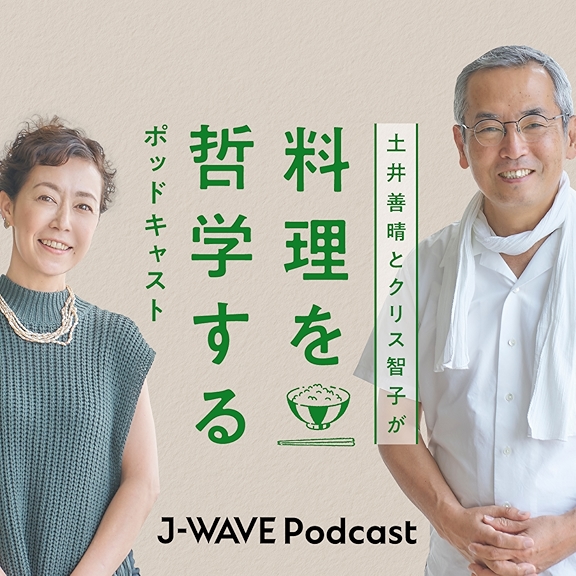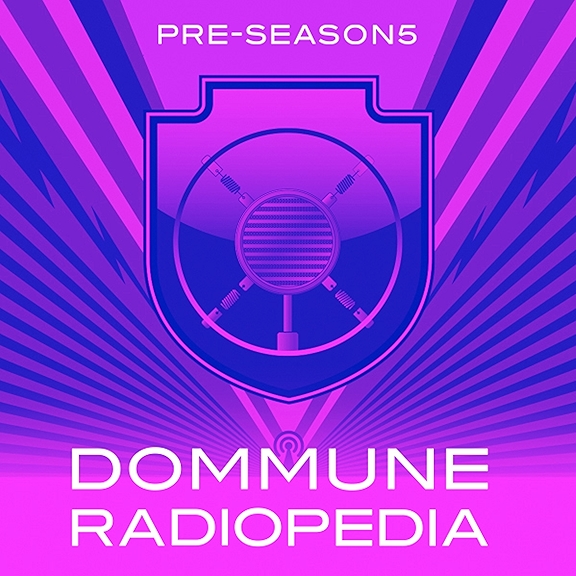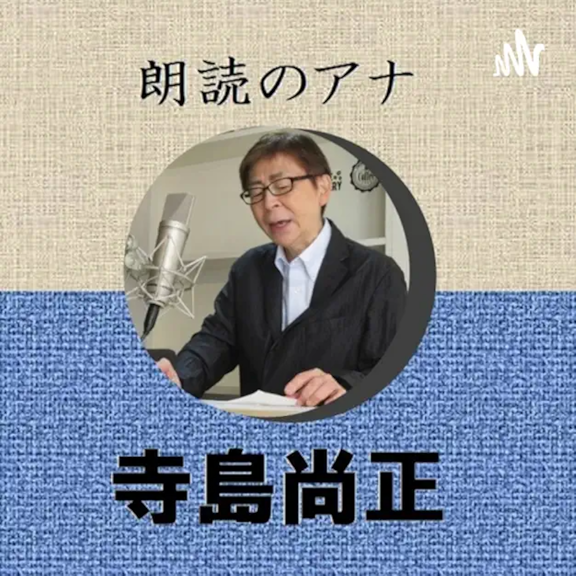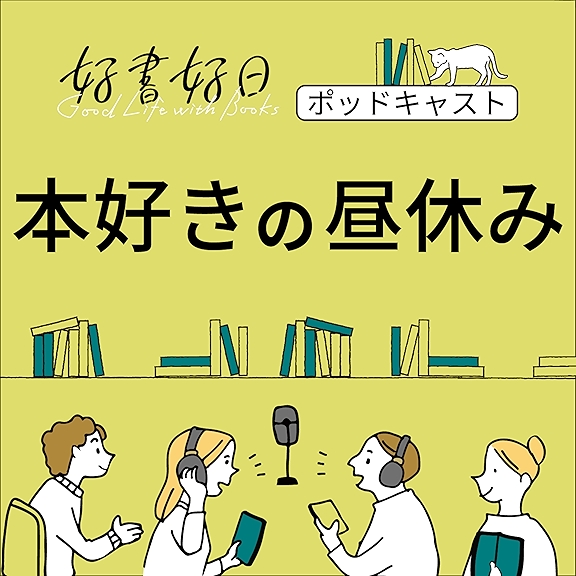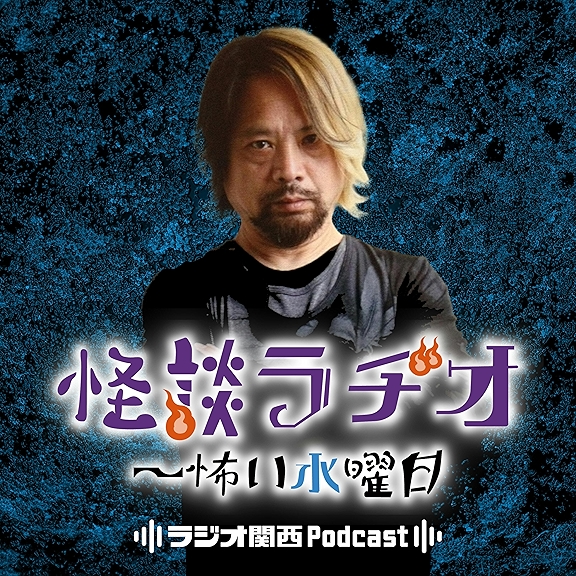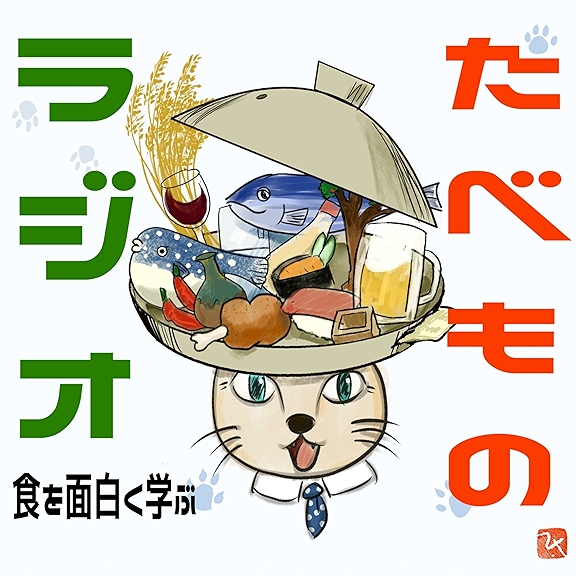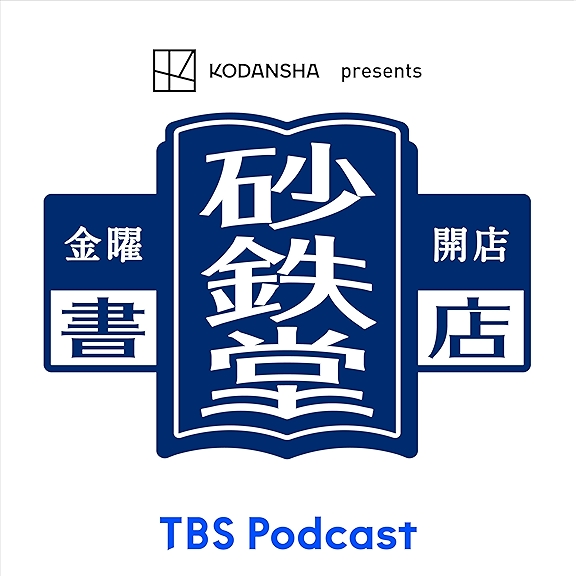
Episode 19 - What Are You Working On Next? - Your Second Big Idea
Hi everyone, and thank you for tuning in to another episode of the We Make Books Podcast - A podcast about writing, publishing, and everything in between!
We’ve recovered from Submissions September and we’re back to our regular schedule this week! And after going through the whole process of preparing and submitting your novel, we thought what better to talk about than what comes next? Writing, editing, and publishing after your debut book is different in every way - the writing, editing, and even just coming up with the ideas are all changed this time around. This week we talk about what it’s like on the other side of debut and what happens when you get the question “What are you working on next?”
We Make Books is hosted by Rekka Jay and Kaelyn Considine; Rekka is a published author and Kaelyn is an editor and together they are going to take you through what goes into getting a book out of your head, on to paper, in to the hands of a publisher, and finally on to book store shelves.
We Make Books is a podcast for writer and publishers, by writers and publishers and we want to hear from our listeners! Hit us up on our social media, linked below, and send us your questions, comments, concerns, and maybe a cute picture of your pet?
We hope you enjoy We Make Books!
Twitter: @WMBCast | @KindofKaelyn | @BittyBittyZap
Rekka: 00:01 Welcome back to another episode of We Make Books, a podcast about writing, publishing and everything in between. I am Rekka, I write science fiction and fantasy as RJ Theodore.
New Speaker: 00:10 And I'm Kaelyn. I am the acquisitions editor for Parvus Press.
Rekka: 00:13 And today we are finally done with Submissions September.
New Speaker: 00:18 We survived.
Rekka: 00:19 We survived.
Kaelyn: 00:19 It was touch and go there for awhile.
Rekka: 00:21 Which you know. Okay. So this is funny timing on these episodes. We talk all about submissions in theory. By the end of submission September you've got a book deal.
New Speaker: 00:29 Yes.
Rekka: 00:30 So immediately what do you start working on?
New Speaker: 00:33 Your next book.
Rekka: 00:34 Something else, right. So this is what this episode pretty much boils down to is, Hey, um, whenever you have a break in the production of the book that is coming out next, make sure you're thinking about the book after that and we'll get into why and we'll get into how a little bit. Um, it's going to be personal, like whatever works best for you. But really, um, the advice in this episode is, um, is pretty sound. I think you've got to -
New Speaker: 00:59 Yeah, it's um, it's a daunting prospect I think sometimes.
Rekka: 01:04 Like, what do you mean I have to do that again? Yeah. Well the good news is at least submission. September will go differently the second time when you're selling it to a book or you're selling it to a publisher who already wants it.
New Speaker: 01:13 Exactly. Yeah.
Rekka: 01:14 That cuts out a lot of the anxiety and that sort of thing. Um, and you're moving into a like, yeah, I've done this, I know how this works kind of thing. And so you have a lot of insight. Um, you're a veteran now. You're, you're, you're wizened and sure enough the submission was seasoned and, and ready to hit the next one. In theory, you want to make a career of this. So a, that's what this episode gets into is what's next. You sold your book, um, submission, September ended in triumph and now, um, and now we look ahead to the next project. You stay creative, stay writing, stay drafting.
New Speaker: 01:48 So, um, yeah, it's a little more of a, you know, I won't say emotional, but you know.
Rekka: 01:53 I think it was pretty dry. I mean, this is just like, Hey, this is the, the truth of it.
New Speaker: 01:57 Yeah.
Rekka: 01:58 Thinking about it. This is the hard facts people.
New Speaker: 02:00 Yup.
Rekka: 02:00 So enjoy the episode. Here it comes.
Speaker 2: 02:13 Music
Rekka: 02:17 Now I've turned off the phone.
New Speaker: 02:18 So the volume is up, the fan is off. I have tea, we're ready to go now.
Rekka: 02:27 And were wearing sunglasses.
New Speaker: 02:30 Is that a Men In Black reference?
Rekka: 02:32 Blues Brothers.
New Speaker: 02:33 Oh geez. I'm embarrassed.
Rekka: 02:35 That you should be.
New Speaker: 02:36 That was sad for me.
Rekka: 02:37 Like I feel like you should represent Chicago even though you're mostly in New York.
New Speaker: 02:41 I'm all New York. I've been -
Rekka: 02:43 No your, your a little bit Philadelphia.
New Speaker: 02:45 Oh yeah, yeah, absolutely. Well more of that. Like I've been to Chicago once and it was to go meet the Baker and Taylor people. Um, I flew there, sat in the United lounge with Colin and worked on stuff for five hours, got in an uber, went to the Baker and Taylor people, got an Uber, came back, had dinner, got on a plane.
Rekka: 03:05 So you got there early and you just sat in the airport for five hours or was it?
New Speaker: 03:08 Yeah the way the flights work you kind of, and it was also one of those like I'm just going to get up at four in the morning, get on literally the first flight out of LaGuardia because I do not want to risk that there is a problem and I get there late.
Rekka: 03:20 Fair enough.
New Speaker: 03:20 So yeah, we sat in the United lounge, got a lot done. It was super productive. Um, so that is all I've ever seen of Chicago.
Rekka: 03:28 The United lounge, that's about it. I don't think there's really much more to it than that.
New Speaker: 03:31 They had an excellent tea bar in there because, um, well I don't drink coffee. So usually like you go to those places, it's like, Oh, here's some hot water and a tea bag, I guess.
Rekka: 03:40 Yeah.
New Speaker: 03:41 They had honey and different kinds of sugar and mint and lemon and orange slices.
Rekka: 03:46 Okay. I'm impressed when you get to mint, everything else. I was like, well that's just Panera.
New Speaker: 03:50 They had fresh mint and it was um, do two different kinds of honey. I was very impressed. I was like, Oh, actual sugar cubes.
Rekka: 03:59 Hmm.
New Speaker: 03:59 Yeah. I don't know why I'm so excited about that. But it was, it was fun.
Rekka: 04:02 You do drink tea.
New Speaker: 04:03 Yeah. But I don't put sugar in it.
Rekka: 04:05 But it's nice to know that someone's considered your tea drinking.
Kaelyn: 04:09 Absolutely, yes.
Rekka: 04:10 It's nice to be appreciated.
New Speaker: 04:12 Because you coffee drinkers, you guys get all the -
Rekka: 04:15 Oh no worries. Um, ever been at a gas station?
New Speaker: 04:18 You guys get all of the like fancy stuff and like it's nice to see someone go, tea can also be fancy or -
Rekka: 04:23 Are you just sad that there's no pumpkin spice now?
New Speaker: 04:26 You know what? I'm not a big fan of that.
Rekka: 04:30 Are you a tastes like soap person?
New Speaker: 04:31 No, but I will say pumpkin bread. That's my jam.
Rekka: 04:36 Well that's very different from a pumpkin spice tea.
New Speaker: 04:38 I know. And I'm saying like it's -
Rekka: 04:39 Not a coffee is not.
New Speaker: 04:40 Yeah, I'm not into all that like pumpkin spice, whatever. It smells good.
Rekka: 04:46 You know what? This is really topical for the first episode of October. I feel like we nailed it. We totally didn't even mean to do that.
New Speaker: 04:52 It was 100% intentional.
Rekka: 04:53 Okay. Yeah. So this is the first episode of October.
New Speaker: 04:56 Yup.
Rekka: 04:57 This one's mine.
New Speaker: 04:58 This one's yours.
Rekka: 04:59 Kaelyn got to pick the last full topical episode topic. Then she looked at me when we were trying to decide the next one blank from eyes to soul going, I have no more ideas.
New Speaker: 05:13 We um, yeah, we mentally did some things to ourselves with Submissions September. We're kind of like, is that it? Are we done now?
Rekka: 05:22 Like did we nail it? Is the podcast over?
New Speaker: 05:24 I think it's over.
Rekka: 05:25 Okay. Let's go play mini golf with me.
Kaelyn: 05:27 Yeah, exactly. And then we came to our senses and we were like, no, there's probably still a lot going on here.
Rekka: 05:32 Writers still write, editors still edit, acquirers still acquire.
Kaelyn: 05:37 We and we always will that's what we do. We gather.
Rekka: 05:42 You accumulate like so much catamary.
Kaelyn: 05:46 So today where I'm kind of kicking it back over to a more author centric sort of thing.
Rekka: 05:53 Yeah. So when we were trying to come up with topics, I mean like I'm blank except for what's on my mind pertaining to my own writing. So, um, at this point, you know, there are things that come up, like you've been writing a series and suddenly like the end of the series is in sight. And the question is,
Kaelyn: 06:14 This is in no way relevant to anything that's happening to Rekka right now.
Rekka: 06:17 No, no. Well that's what I said. You know, it's, it's on my mind because it's on my mind. And so when you can see the end of this uh series in sight, or if your book was a standalone, someone, probably an agent or a publisher, your editor, someone is going to say, so what do you got next? Because chances are in your contract, there's a, there's a funny little clause in there that they get to see your next thing, um, before you send it to anyone else.
Kaelyn: 06:42 That's true.
Rekka: 06:43 So, um, when they start looking for that thing because they're planning their calendars out maybe two or three years in advance.
Kaelyn: 06:51 Yeah. Actually. And you know what, that's a good thing to kind of stop and take note of is that we do plan these things out quite a bit in advance. We've talked before about, you know, understand how long it's gonna take to get your book published.
Rekka: 07:05 Yeah.
Kaelyn: 07:06 So then on top of that from the publisher side, they've got a factor in how long it's going to take you to write something then go through this whole probably 18, minimum 18 month -
Rekka: 07:17 Usually.
Kaelyn: 07:17 - process.
Rekka: 07:18 Sometimes more depending on that publishers slate.
Kaelyn: 07:21 So yeah.
Rekka: 07:23 Yes. I have heard from um from friends, I will not name publishers, but they're, you know, there are some publishers that are already looking at 2023.
Kaelyn: 07:31 Yeah.
Rekka: 07:31 Which is, which is a lot to think about as a writer. Like wow, that seems really far away if you are submitting to them. But if they're turning around and saying, Hey, what you got for us next? And you're like, I don't know, you had any, I gotta write something, have me, you kind of wrapped up in those revisions or something, you know, then it's, then it seems really close.
Kaelyn: 07:50 Yeah.
Rekka: 07:51 Or at least the fact that they want to buy something for that year now seems like, Whoa, okay, hold up there. I gotta breathe for a minute. You know? Um, so yeah, that's one of the things that you know, to think about as you're working. Say you're, this is your first contract, um, your first sale of a, of a book or a series. You go from writing in your own time, determining how fast you're going to finish it, um, what you want to work on. Everything's kind of in that creation mode. Then once your book enters a publisher's calendar, now you have revisions line at it, copy edits, then there's promotion. And chances are, as an author, you're going to have to write either some interview questions or some guest posts for other people's blogs. Um, there might be some articles for your own website. The publisher may want you to put, you know, put an article somewhere. There's always something to do to work on this book, like right up and sometimes even after it's released. So, um, that can take up a lot of time. And if you are already balancing uh, something else in your life, like a full time job, maybe you're a caretaker for somebody, maybe you just have gobs of doctor's appointments to go to and um, every spare minute is kind of predetermined. Then all that writing time that you used to find for yourself and you probably had to wrestle for that too, is now like your revision time or your reviewing your copy at its time or you're proofing your layout's time and then the book goes out and you have not really been potentially writing as much.
Kaelyn: 09:34 Well, because I think you, think about like, Oh my writing time, but then what it becomes is really it becomes your book time.
Rekka: 09:39 Right.
Kaelyn: 09:40 Don't think about it as -
Rekka: 09:41 That was my writing time.
Kaelyn: 09:42 That was your writing time. That was you're working on your book time. Be that, you know, writing it, revising it, prepping for release.
Rekka: 09:52 It's all working on your book.
Kaelyn: 09:53 It's all working on your book.
Rekka: 09:54 Those are just the phases of the process that you aren't maybe drafting creatively anymore. I mean sometimes revisions, there's significant chunks that are basically starting over from scratch kind of thing for certain scenes or even sections. But um, yeah, it starts to feel like that time belongs to someone else where it used to belong to you because these are things that publishers asking you to do.
Kaelyn: 10:18 You're going, well, so then what's going to happen is you're going to get some of it back.
Rekka: 10:22 Yeah.
Kaelyn: 10:22 Because you're done. And now it's, now what?
Rekka: 10:28 Well, that's tricky for me is because when I'm working on things that are like, I want to say like logic brained. A revision is solving problems. A proofing pass is thinking analytically about things. I'm writing a blog essay that's nonfiction about your writing is very different from just writing creatively. It's a totally different mindset. You're, you're forming these things more like an essay with, uh, you know, opening in a conclusion and all these things. And when you go to sit down to write again, it's, it feels like you're using muscles that have atrophied while you've been doing these other things.
Kaelyn: 11:11 Yeah. I think, um, I think one of the hard things to really do is to mentally shift back to the, I don't want to say creative side, but I will say creating,
Rekka: 11:21 Well it's almost like when you write a draft, you kind of fall into a flow state when things are going really well, you are in a flow state and that is not your, your logical processors are not engaged for that. You are just, you know, letting this inspiration flow and it sounds muse-y and um, poetic or whatever. But you get to a point where things are just kind of happening in, you're more like a stenographer for your story than you are actively engaged in making decisions about your story.
Kaelyn: 11:53 Well, and the other of this is also that going back to mentally shifting and changing, you know, changing gears here, there's a very good chance that you're going to be starting on your next project long before your book comes out. Either it'd be a standalone or the last in a series. And to be clear, that is what we're talking about. We're not talking about wrapping up a series. We're talking about an entirely new thing happening now,
Rekka: 12:20 Right. We're talking about what's the next idea that you've got to sell.
Kaelyn: 12:25 Yeah. And you're probably, if you want to maintain a schedule where you are, you know, than putting out another book as if you know, you were in the same, uh, production schedule is before you're going to be working on that long before your book, your final book comes out.
Rekka: 12:44 Right.
Kaelyn: 12:45 Um, so mentally kind of getting yourself over to, okay, now I've got to come up with something else.
Rekka: 12:54 Well, some people may be lucky enough that they have these copious ideas and they just have to write them down and then when it's time to pick something else, they just go to their bucket and they say, what looks good today? And that's fantastic. If you have that. Um, it's still tricky because you've got to fit in working on this, around these other things. Like your revisions come back or your copy of it comes back. So you may think like, Oh, it's July, I'm going to start drafting that book and maybe I'll get to like 20,000 words or something. And then your revisions come back halfway through the month and while they need to get back to them. So you stop everything you're doing and you work on your revisions during that time that you would normally schedule for writing this new project.
Kaelyn: 13:35 Yeah, and something that I even struggle with just as an editor is, is getting in the zone.
Rekka: 13:42 Yeah, oh bouncing between, um, different worlds basically.
Kaelyn: 13:46 Different, this sounds silly, different writing styles, but mentally kind of, you know, it's one thing like, okay, I have last book in this series. I've done the developmental edits, I've done the revisions, but then getting it back and having to work on the line edits if you're then drafting something new at this point, that's, it's a huge mental shift. I have all these tricks that I use for like when I've got to jump between books. I have um every book I work on gets a playlist. Um, at one point I had different teas that I would drink when I was working on different books, just to kind of trick myself into like, ah, yes, I remember what I felt like when doing this.
Rekka: 14:26 Yeah, I did that with incense before my throat to bother me. Um, I would come out here and whatever project I was working on would have its own scent of incense and then I've developed my throat problems. So incense was irritating it and I haven't been able to use that one. But yeah, music definitely I switch music. Um, background sounds bef- between different projects.
Kaelyn: 14:49 Yeah, it's, I think people underestimate how difficult that is to kind of get back into the mental state you're in when working on one thing.
Rekka: 14:52 Plus for me, you know, if I have like two hours in the morning before I go to work, I know I'm not going to finish that. Next thing I want to do so I know it's going to take me multiple days to work on. So if I expect that I'm going to have to break and do something else in two days, then I have a really hard time allowing myself to shift modes. Like I will lose two days worth of work because I know in two days I'm going to be working on something else again. And it just kind of ends up being wasted procrastination time because I know that there's something looming and it prevents me from feeling like I can really get back into the one thing that I was going to try and do before that came back and I am a hybrid publisher, which means I am traditionally published through Parvus but I also work on my own stories and release them in my own ways. I've got um, Patreon content that I then um, edit and release as final versions, which I just recently did and I have novellas in the same world that Parvus is publishing longer novels in and um, check your contracts kids, this may not be permissible by yours, but I was pretty careful to get that written in.
Kaelyn: 16:12 Rekka is allowed to do that.
Rekka: 16:13 Yeah. This is in my contract. I'm allowed to publish and non-novel length stories in the same world.
Kaelyn: 16:20 Again, everyone read your contracts.
Rekka: 16:22 Don't - and make sure your publisher, even if it's in your contract, make sure your publisher is aware of what you're planning because they might have like either a suggestion about what might work better or in terms of how to like release things. Um, or like, Hey, we're concerned that that's going to cannibalize your sales or something like that.
Kaelyn: 16:43 That should be our next thing that we print or make just stickers that say, read your contract.
Rekka: 16:49 We, uh, yeah. So, um, so yes, by my contract I'm allowed to do these things, but it means that I'm producing a lot of stuff all at once and various stages. And, um, so switching back and forth between those things, it helps me to um, go in and say like, okay, this week I'm working on revisions for all things because when I finish one and go into the next, it doesn't feel like that, like uphill slog to change tracks, but doing all these things and then having day job on top of it means that it's really hard to sort of find the open space that I can start to create new ideas and stories in. And so that's sort of one of the things I wanted to talk about today was not just like find time for it and figure out how to switch back and forth. But like we said at the beginning, be aware that your publisher's going to be thinking further out then your next release with them and they're going to come back and say, do you have for us?
Kaelyn: 17:50 Freaks me out how far in advance I have to think about things. I recently had to go into my calendar and put something on there for the middle of 2021. And I'm like, Oh my God, that, that doesn't even sound like a real date to me. And that's what they hear. But then I'm like, Oh God, that's, that's less than two years away.
Rekka: 18:06 So when you put something on your calendar for 2021, it was just over a full year away. But it's.
Kaelyn: 18:20 Two, almost two.
Rekka: 18:22 No, it's October. Kaelyn.
Kaelyn: 18:24 Middle of 2021 is almost two years away.
Rekka: 18:27 Nah, not, not when you start rushing toward it. So you have to subtract back, you know, say you're on an 18 month publication schedule, you have to subtract back from that. And that's like the latest that you need to be sort of getting a new draft of something, honestly, unless you've got a real plan and a real solid.
Kaelyn: 18:46 It is. Even though it's funny because it's something that I know these things like I do every time. So, you know, we acquire a book, we get the contract signed, we, you know, ritually, uh, do what we need to, to the author. Don't worry about that people. It's nothing. There's, there's certainly no sacrifices involved.
Rekka: 19:05 Just bottles of alcohol.
Kaelyn: 19:08 Um, and then you sit down and you go, okay, the release dates going to be this and you start working backwards in the calendar and yeah, it never ceases to freak me out.
Rekka: 19:16 Yeah. Even though it seems like it's really far away until you back all the way up to like okay first draft needs to be turned in on Oh shit. Tomorrow
Kaelyn: 19:24 and but you know what, that's the thing is when you, I think we think about the ultimate goal of publication and it's so far away and then when you see all of the things that you actually are going to have to do leading up to that and some of them are next week.
Rekka: 19:37 Yeah, some of them are. Yeah. Like make announcements to things or update the website to add your author and like watch out for this exciting new project that's coming your way. We'll announce it soon. You know, newsletters should be going out pretty regularly and so an author is going to release new newsletters too. That's one more thing on your plate. That's nonfiction, non-creative, non flow state kind of projects. So be aware that your publisher is already thinking that far ahead. And we mentioned recently that when a publisher picks up an author's book, they're also expecting that that author is going to be part of the publishing company's brand.
Kaelyn: 20:18 Yeah.
Rekka: 20:18 So they're looking to continue to expose you to their audience.
Kaelyn: 20:22 Yes.
Rekka: 20:23 And so that means no, you don't really want to wait three years from what you're one stand alone to the next or from the end of your series to the next project.
Kaelyn: 20:31 And that, I mean that is a definitely a thing we consider is that like, you know in Rekka's case, you wrote what we, we don't even know what to call it. So many fricking genres here.
Rekka: 20:43 Hey, what can I say? I'm a collector.
Kaelyn: 20:46 Salvage is, is out now. So I can, can I, can I say -
Rekka: 20:50 There's dinosaurs and zombies, people. There's an a bank heist.
Kaelyn: 20:52 It's freakin zombies at the end of this one, okay? So, um, but Rekka as a brand where like, well Rekka writes, great things in space. So we have a little legion of readers that enjoy Rekka's writing about things in space. So obviously the next thing we're going to want out of her is not the same but it's something that will also appeal to -
Rekka: 21:16 Right. You don't want me to turn around and write like an urban fantasy noir.
Kaelyn: 21:21 Exactly.
Rekka: 21:22 That's just going to confuse the readers. So when you are thinking about your future projects that you know your publisher's going to want because you've read your contract and you know that they have a, you know, next book kinda um, section in there, you know that they're going to want you to write something similar. Now if you know that they're having trouble positioning your book because you've written in 12 genres per chapter, then you might want to do them a solid and pick like one pretty solid, pretty marketable thing. But that's only if it inspires you.
Kaelyn: 21:54 I mean, growing, you know, in Rekka talks a lot about this and I think it's an important thing, is that you, the author are a brand growing. Your brand is actually growing your audience. And no matter what your publisher does, no matter what the marketing is, a lot of your audience is going to follow you from book to book because they like you, you like your writing. Think about how many books you pick up that your dislike. Oh, I read something else by this person. I really liked it and just grab it. I do that constantly. I have so many authors that I follow because I just like the way they write, how they tell a story.
Rekka: 22:35 Yeah.
Kaelyn: 22:35 It can be a deciding factor for me.
Rekka: 22:38 Yeah. So some of your readers are going to pick up your book no matter what you write, but your publisher is going to be aware that if you write something completely like turned around from the last thing that you might also have some readers who leave bad reviews because it's just not what they expected. And so that's a whole other thing. But you know like that is part of the mental calculation that's going on. It may not be the whole thing, but um, it's definitely something to consider. And maybe you as an author are writing tangentially to a position that the publisher wants to fill. They may have a conversation with you like, Hey, we'd like you to sort of write something like this. Do you have anything like that? And then so you know what they want. Hopefully you've got a couple ideas in your pocket that you can say, Oh well I have this one project that I, you know, it's backburnered at the moment, but this is what it is.
Rekka: 23:31 And right here you're doing an elevator pitch now with someone who already knows and trusts you. Yeah. So that's, that's helpful. But you can still suddenly feel super on the spot and go, uh, well, um, so, uh, I guess, I mean like, give me a minute, you know? But yeah, when you have these ideas, you've also got the experience now of having a book published. You've seen what your query ended up looking like. You've seen what your back cover copy looked like. So you sort of have a rough idea of how to pitch things. You've gone through the process of trying to find comp titles. So when you are presenting these ideas that haven't even been outlined yet, maybe. Yup. Um, those tools will help you say like, you know, like you might even pull the comp titles out of your head. Like what if it's, uh, you know, dances with wolves but on a planet far away and with blue people.
Kaelyn: 24:31 I mean, isn't that Avatar?
Rekka: 24:32 Yeah. Nobody wants that. But you know, I'm just trying to, I was trying to create one that was was a story already. Um, so it's completely conceptual at that point. You've got an eye, a hint of a plot because you've mentioned one movie and you haven't said like, Oh, it's the um, you know, friendly animals have dances with wolves. You know, you've said like, well, so how do you come up with these things? You need to create room in your life to come up with new ideas because when you are churning out work, that's actually not a great way to generate new ideas unless you're procrastinating. And then in which case you go, Oh, this project would be really cool. I wish it was working on that and not this like that's, that's fine, but get, get to work on the thing you need to be working on.
Rekka: 25:21 Like stop procrastinating, you'll be happy you did. Um, but so in those moments of procrastination, you are, you are going off and kind of refilling your well in a little bit of way, but like in a weird way that also generates resentment. But um, but yeah, you gotta refill your well, you've got to take breaks. You've got to create space in your life to observe and not be producing so that your brain can relax. This is why we get all our good ideas in the shower.
Kaelyn: 25:51 That's, it's 100%. No, I mean this was like a scientific thing is that your, your brain is constantly, there's a thousand little processes running in the background that we don't know or see about and look, some people can sit down and go, all right, I've just got to come up with something and come up with something.
Rekka: 26:09 And this is, I'm always reminds me, I think it was Family Guy where um, an editor is talking to Stephen King in his office and he says, so what have you got for his next? And Stephen King is just kinda like, you can see them eyeballing the room to sleep were says it's about a lamp. That family that gets attacked by a lamp monster.
Kaelyn: 26:30 Yeah.
Rekka: 26:30 Cause he looks at the lamp on the guy's desk and the editor's like fine, I'll buy it. Give me a draft.
Kaelyn: 26:35 Just get me a draft in a couple months.
Rekka: 26:37 Yeah. So I'm obviously mangling the quote cause I haven't seen this in years, but I always think of that scene when it's like someone like, what's your next story? I'm like, Oh shit. I don't know. Speaking from personal experience, I got a call from Colin of Parvus Press one day and he's like, Hey, so what are you working on next? I'm like, the third book you get out of here, please go away. But then, I mean, as Kaelyn said, your brain is always processing. So over the next week or so, maybe even a couple of weeks I had this input, you know, like this query that had been entered into my brain, what are you gonna work on next that isn't in the world of Peridot?
Rekka: 27:14 And um, so like eventually my brain sort of engaged on something and I came up with a thing and I email or I think I texted him, I texted him the, the comp titles basically.
Kaelyn: 27:24 You do text a lot.
Rekka: 27:25 Yeah, I like to text, sorry. It's quick, it's easy, it's bite size. You can just ask one question and if the person on the other end feels so inclined, they can answer it. And um, so then he's like, cool, sounds good. I'm interested. And I'm like, all right, cool. So I think I might've sent him two or three and I kinda had an idea of when he was interested in and then the conversation came up again a little bit later like so, um, you know, you thinking about writing something else for as soon. Yeah, I guess so.
Kaelyn: 27:59 Yes, so and by the way, I'm going to jump in here real quick on the publisher side of things, I especially, you know, my authors that I like, which like I don't have any authors I don't like.
Rekka: 28:11 RIght. As part of your, your submission September process, you make sure that you will like the authors you're going to be dealing with.
Kaelyn: 28:18 But I want to help them publish more things because I, we obviously like their writing and we like the readership that comes along with it. So I mean if you want to put it in strictly capitalists terms, it's good for business, but it's good for everyone.
Rekka: 28:33 Yeah.
Kaelyn: 28:33 Because I like working with this person. I know that they've got a certain built in readership that's going to follow them. Also, I want to help them be successful. That's like, that's one of the things that I take very seriously is that I want to help you, the writer be successful.
Rekka: 28:48 Yeah. And part of that is generating content for your readers to glob onto and love forever.
Kaelyn: 28:53 Exactly.
Rekka: 28:53 Yeah. And so I just described this process of coming up with an idea, and I will be honest, it was not hours and hours of work. It was just having the awareness that I needed to be thinking about this. So those moments in the shower, watching TV, you know, looking out the window, going out in a drive there, -
Kaelyn: 29:14 And you gather, it's like stray little thoughts, what about this? What about this? And then you kind of get them all into a bigger idea that will eventually unfold into a story.
Rekka: 29:25 Yeah. And so the nice thing about this process, like I said, I didn't put a whole lot of effort into or like, okay, I won't say I didn't, it wasn't effort, but you know, it wasn't a lot of my production time. The other things that I had to be working on, it wasn't coming from that. It was those moments that I was already quiet and just knowing to keep it, like keep a eye open for incoming ideas. And then because I already had a relationship with this publisher, um, you know, this might be your agent, this might be your editor who's asking you for these, um, ideas. You can throw them out there before there is something that you've put two years of drafting into.
Kaelyn: 30:07 Yep.
Rekka: 30:08 You know, when you query a story for the first time or you put it out on submission to a publisher, this is something that you've worked on for years and it's pretty much as done as it can be without more help.
Kaelyn: 30:17 Yes.
Rekka: 30:17 And that is a huge investment of time to get your foot in the door to even be noticed by somebody else. Now you've got their attention so you can have a thing. Like I was just thinking about like what if bubble guns were like, you know, lethal acidic and there's a secret agency and they go into space with the bubble guns to do something. I don't know. You know?
Kaelyn: 30:43 Well, and it's interesting what you're hitting on is you're not doing this by yourself this time.
Rekka: 30:48 Right.
Kaelyn: 30:49 This is probably, and you know, depending on the state your series was in when you came, if like some people have a lot of it written already, some people are writing it as they go. Um, you did not have your series completed.
Rekka: 31:01 It was not completed, but the first two books were drafted.
Kaelyn: 31:07 Yes. But working on drafting while you have an editor is very different than working on your own.
Rekka: 31:12 Which is funny because you now have this person that you can reach out to and share this stuff with and then you start to, you know, like when you're writing it on your own, you're just, I've got to finish this, I want to finish it. Now you have somebody that you can throw the first few chapters at, but then you really have to be conscious about continuing to work on it while you wait for feedback because that feedback may not come back like that afternoon at 4:00 PM before you even have a chance to sit down and write again. So, um, yeah, I don't want to chase that idea too far because that's not really the point of this episode, but it's, you know, when you're tossing out ideas for future stories to somebody who's already interested in your future stories, um, you can toss them out in, in sizes that you will get pretty quick feedback on and you'll be able to gauge the enthusiasm before you even really invest in writing an outline or anything like that. So if they trust you to write a story, they may be like, well, I don't really see where you're going with that, but it's, I mean, an outline. Good.
Kaelyn: 32:16 Okay, let's see where the, what happens.
Rekka: 32:17 But like you're a cool author, we like you, we really like how you tell stories. So whatever you do, it's going to be interesting.
Kaelyn: 32:24 Yeah. And you've also, you've heard some friends, some creds as it is, you know, you've got some, some style.
Rekka: 32:31 Yeah.
Kaelyn: 32:32 Yeah. You've got some money to play with. I guess when I say money, I mean like,
Rekka: 32:37 Yeah.
Kaelyn: 32:37 You've got some chips to play. Yeah.
Rekka: 32:40 So they're going to give you a little bit of room for doubt. But also, you know, as we already said, they're looking out on their calendar. So you start to tell them about this one story and they're like, yeah, that's not really what we're looking like. We've already got something like that. Can you, maybe we'll angle it more toward this. Yes.
Kaelyn: 32:57 Which then there's another thing about when they're looking at your calendar, you are writing a brand new story on a deadline now.
Rekka: 33:03 Yep. So whatever they decide they want, they're going to give you a date that they need the draft by because now they're going to put you in their calendar and yeah, they may write it in pencil at this point, but they are going to mostly commit to it.
Kaelyn: 33:24 I mean pencil within a couple months. Either way. Yeah. You know, either direction and it's, it sounds very far away and then it's like, I need to write 120,000 words in four months.
Rekka: 33:32 Right. Basically, because when they put it out on the calendar, they're going to know and you're going





